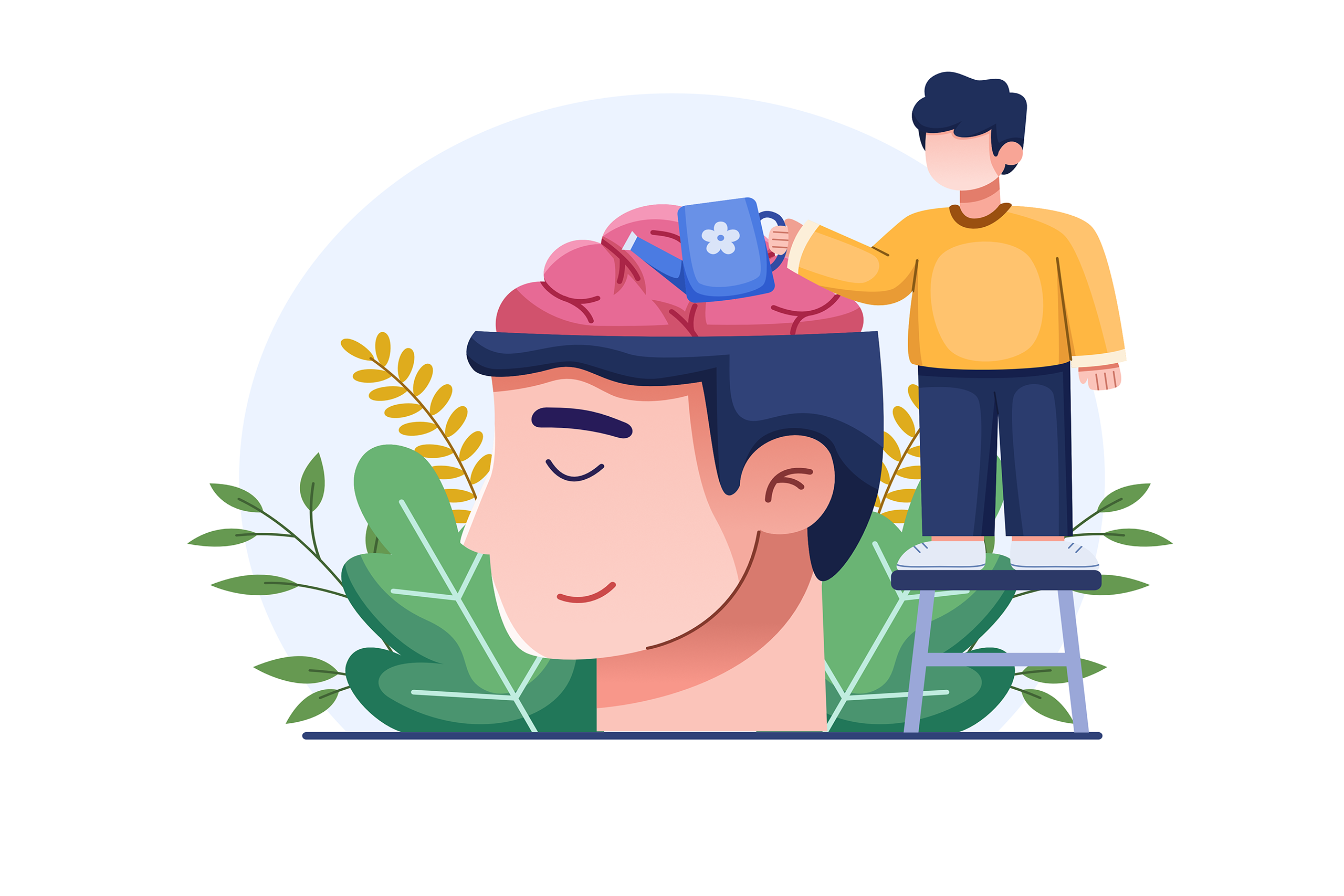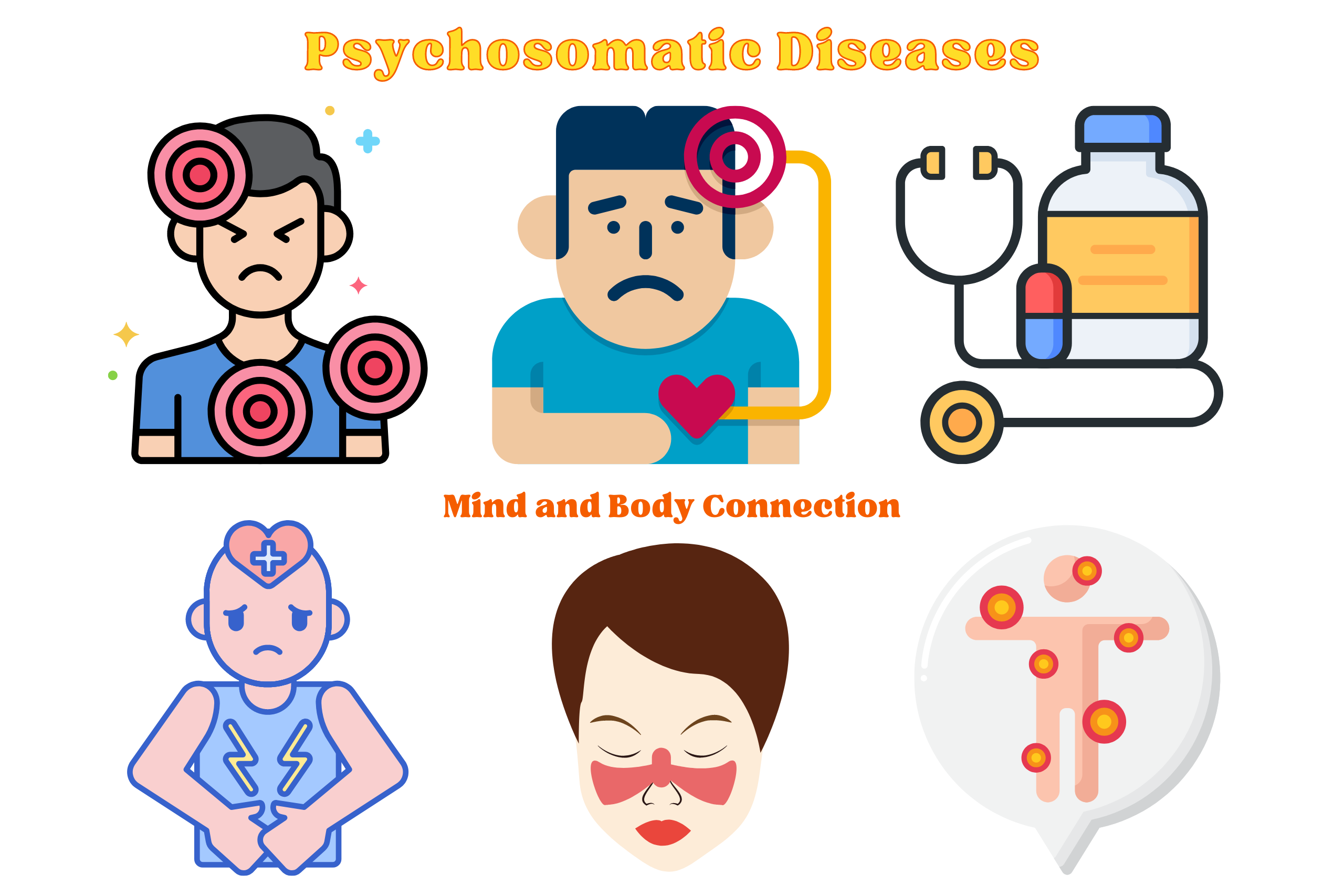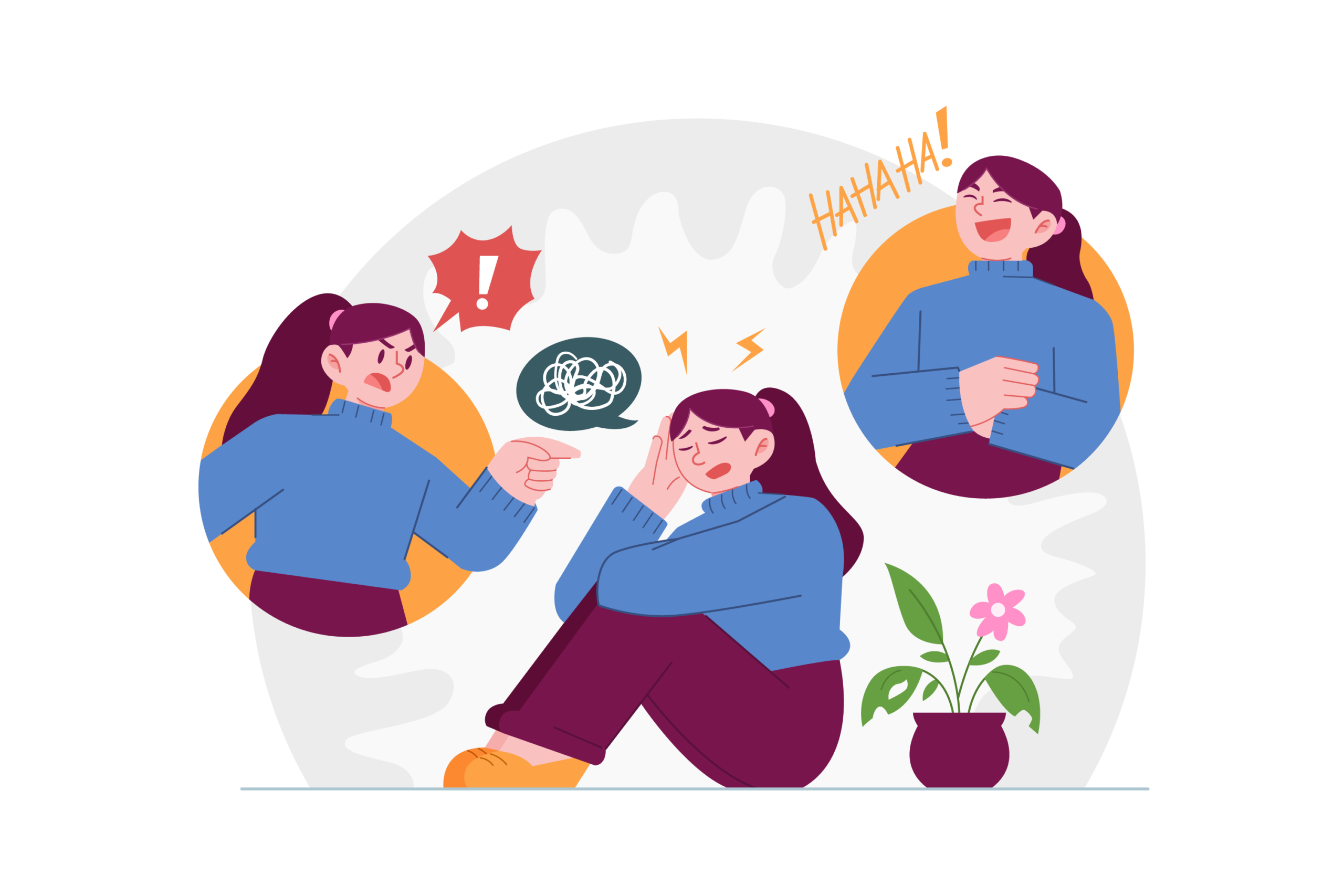Treatment Options for Psychosomatic Illness
The term “psychosomatic illness” describes a condition where mental stress or related factors are believed to either cause or exacerbate a physical illness.
Because this condition is intimately connected to both the mind and the body, its treatment encompasses therapeutic approaches from both medical and psychological perspectives.
Someone diagnosed with a psychosomatic illness is initially assessed for the presence of stress-related factors before proceeding with appropriate treatment.
Treatment options for psychosomatic disorders vary since individuals experience distinct medical conditions triggered by psychological stress. While physical diseases caused by mental factors can be managed through medications or surgeries, a comprehensive cure hinges on identifying the root causes of mental stress. Consequently, therapies aimed at addressing these psychological factors, including stress, anxiety, and depression, become crucial in healing the physical ailment.
Therapies Treatment Options for Psychosomatic Illness
These therapeutic approaches encompass:
-
Psychotherapy (also referred to as “talking treatment”):
In this method, the patient engages in discussions with a healthcare provider about their mental state and life experiences. These conversations help the therapist analyze the specific mental illness afflicting the patient, enabling them to offer appropriate treatment.
-
Psychoanalysis:
This form of therapy is utilized to address conditions like depression and anxiety disorders. It is a prolonged process that necessitates frequent sessions, typically ranging from two to five times a week for several years. The psychoanalyst explores the patient’s childhood memories and dreams, which play a significant role in their mental state.
-
Cognitive Behavioral Therapy (CBT):
CBT centers on evaluating the patient’s thoughts and beliefs that influence their mental well-being. This therapeutic approach assists in combating negative emotions and behaviors that contribute to conditions such as depression, anger, phobias, and chronic pain. The frequency and duration of CBT sessions vary depending on the patient’s condition’s severity.
-
Group Psychotherapy:
Group therapy typically involves 5 to 15 patients guided by a trained psychiatrist. Participants work towards achieving emotional balance and improved mental health. This therapy is particularly beneficial for individuals facing relationship difficulties or dealing with medical illnesses. Group sessions, conducted in a private setting, typically last for 1 to 2 hours each week.
-
Electroconvulsive therapy (ECT):
ECT is mainly used for severe depression and other mental conditions. It involves passing a controlled electric current through the brain to alleviate mental illness symptoms. ECT is administered over a month with specific intervals and is considered a safer and more effective alternative to medication.
-
Hypnotherapy:
Hypnotherapy induces a trance-like state where conscious control is suppressed, revealing the subconscious mind. It’s used to treat stress-related disorders like insomnia and conditions aggravated by tension, such as irritable bowel syndrome, psoriasis, and eczema.
-
Abreaction therapy:
This therapy aims to release emotions tied to traumatic events. It requires a longer duration compared to other therapies but isn’t widely utilized.
-
Acupuncture therapy:
Acupuncture involves stimulating specific points in the body with needles to correct energy flow irregularities along meridians. It’s primarily used for anxiety and depression and may vary in frequency based on the patient’s relief from stress factors. Many patients experience deep relaxation after acupuncture.
Auxiliary Treatments for Psychosomatic Illness:
Pharmacotherapy:
- This supportive treatment, coupled with psychotherapy and ECT, involves administering antidepressants and anxiolytics to reduce depression and anxiety. It takes several weeks to significantly improve the patient’s mental well-being.
Psychosomatic physiotherapy:
- This therapy focuses on enhancing overall health by regulating emotional balance in the mind.
Exercises:
- Physical activity benefits both physical and mental health in patients with psychosomatic conditions by alleviating psychiatric and social challenges. Studies suggest that exercises can improve social interaction and body perception, among other aspects.
Yoga:
- In individuals dealing with mental health issues, techniques such as pranayama (breathing exercises) and meditation prove highly effective in alleviating stress. By holding the breath, muscles are tensed, temporarily pushing aside stress, fear, and other emotional factors. Extending this practice impacts the thoughts and emotions of psychosomatic patients positively.
Osteopathy:
- This approach employs manual techniques, including hand pressure (massage), to reduce stress. The primary goal of this hands-on therapy is to positively influence the body’s nervous, circulatory, and lymphatic systems. It aids in diminishing anxiety and pain while creating an opportunity for the patient’s body to facilitate its healing.
Lifestyle Modifications:
- Implementing changes in one’s daily routine, such as reducing caffeine consumption, maintaining a balanced diet, incorporating vitamin supplements, and abstaining from alcohol and smoking, can also provide a degree of relief from anxiety.
FAQ : People Also Ask
Read more on
Psychosomatic Disorders Conditions
and Know about Your Confidant
Samarpita Nayak, Co-Founder & Mental Health Counsellor, YOUR Confidant




